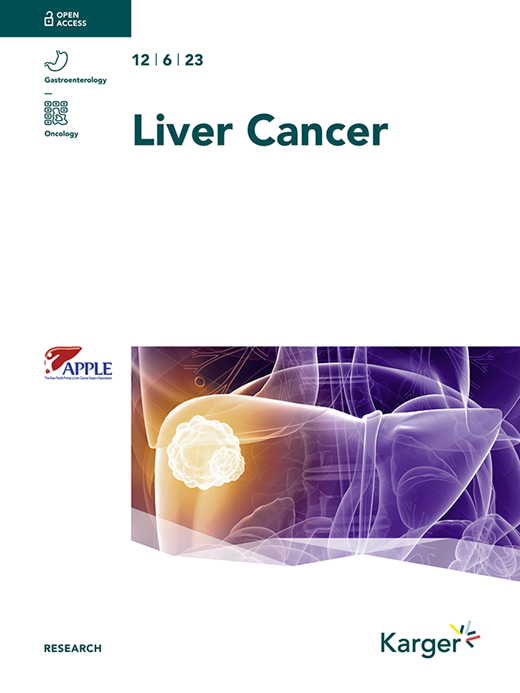Hepatocellular Carcinoma Patients with Hepatitis B Virus Infection Exhibited Favorable Survival from Immune Checkpoint Inhibitors: A Systematic Review and Meta-analysis
IF 9.1
1区 医学
Q1 GASTROENTEROLOGY & HEPATOLOGY
引用次数: 0
Abstract
Background Immune checkpoint inhibitors (ICIs) have demonstrated effectiveness for advanced hepatocellular carcinoma (HCC). However, the discrepancy in the efficacy of ICIs in HCC patients with distinct etiologies has not been systematically validated. Methods PubMed, MEDLINE, EMBASE, clinicaltrials.gov and abstracts from ASCO and ESMO conferences were searched for eligible trials that explored the impact of etiology factor on the ICI treatment in HCC patients. The pooled hazard ratio (HR) of overall survival (OS) and progression-free survival (PFS), as well as the pooled odds ratio (OR) of objective response rate (ORR) were calculated with stratification of hepatitis B virus (HBV), hepatitis C virus (HCV) and nonviral subgroup, and the heterogeneity between different etiological subgroup were assessed by using an interaction test. Results Eight eligible studies with a total of 5646 patients were identified from searching published articles and conference abstracts. ICI therapies were associated with significantly prolonged OS with the pooled HRs of 0.78 (95%CI 0.73-0.84, p < 0.001), 0.71 (95%CI 0.65-0.79, p < 0.001), 0.80 (95%CI 0.69-0.93, p = 0.003) and 0.87 (95%CI 0.77-0.97, p = 0.011) for the whole population, HBV subgroup, HCV subgroup and non-viral subgroup, respectively. In addition, this analysis reported a significant PFS improvement with ICI therapies with HRs of 0.78 (p = 0.004), 0.53 (p < 0.001), 0.65 (p = 0.011) and 0.81 (p = 0.107) for whole population, HBV, HCV and nonviral subgroup, respectively. The HBV-related HCC patients showed the more distinctive HRs for OS and PFS than other etiology subgroups, and this difference was significant in PFS (p for heterogeneity = 0.001) and there was a tendency of significance in OS (p for heterogeneity = 0.079). Furthermore, the ORR advantages of ICI therapies over control were also confirmed with the pooled ORs of 3.62 (p < 0.001), 3.84 (p < 0.001), 3.05 (p < 0.001) and 2.99 (p < 0.001) for whole population, HBV, HCV and nonviral subgroup, respectively (p for heterogeneity = 0.743). Conclusions ICI therapies significantly improve OS, PFS and ORR for HCC patients with different etiologies. HBV-related HCC patients could be the highlighted population to benefit from ICI treatment.免疫检查点抑制剂对乙型肝炎病毒感染的肝细胞癌患者生存率有利:一项系统回顾和荟萃分析
免疫检查点抑制剂(ICIs)已被证明对晚期肝细胞癌(HCC)有效。然而,在不同病因的HCC患者中,ICIs的疗效差异尚未得到系统验证。方法检索PubMed、MEDLINE、EMBASE、clinicaltrials.gov以及ASCO和ESMO会议的摘要,寻找探讨病因因素对HCC患者ICI治疗影响的符合条件的试验。对乙型肝炎病毒(HBV)、丙型肝炎病毒(HCV)和非病毒亚组进行分层,计算总生存期(OS)和无进展生存期(PFS)的合并危险比(HR),以及客观缓解率(ORR)的合并优势比(OR),并通过相互作用检验评估不同病因亚组之间的异质性。结果从已发表文章和会议摘要中检索到8项符合条件的研究,共5646例患者。ICI治疗与显著延长的OS相关,合并hr为0.78 (95%CI 0.73-0.84, p <0.001), 0.71 (95%CI 0.65-0.79, p <整个人群、HBV亚组、HCV亚组和非病毒亚组分别为0.80 (95%CI 0.69-0.93, p = 0.003)、0.87 (95%CI 0.77-0.97, p = 0.011)。此外,该分析报告了ICI治疗的PFS显著改善,hr分别为0.78 (p = 0.004)和0.53 (p <整个人群、HBV、HCV和非病毒亚组分别为0.65 (p = 0.011)、0.81 (p = 0.107)。与其他病因亚组相比,hbv相关HCC患者OS和PFS的HRs更有差异,PFS差异显著(p = 0.001), OS差异有显著趋势(p = 0.079)。此外,ICI治疗的ORR优势也被证实为3.62 (p <0.001), 3.84 (p <0.001), 3.05 (p <0.001)和2.99 (p <0.001),在整个人群、HBV、HCV和非病毒亚组中分别为(p = 0.743)。结论ICI治疗可显著改善不同病因HCC患者的OS、PFS和ORR。hbv相关的HCC患者可能是受益于ICI治疗的重点人群。
本文章由计算机程序翻译,如有差异,请以英文原文为准。
求助全文
约1分钟内获得全文
求助全文
来源期刊

Liver Cancer
Medicine-Oncology
CiteScore
20.80
自引率
7.20%
发文量
53
审稿时长
16 weeks
期刊介绍:
Liver Cancer is a journal that serves the international community of researchers and clinicians by providing a platform for research results related to the causes, mechanisms, and therapy of liver cancer. It focuses on molecular carcinogenesis, prevention, surveillance, diagnosis, and treatment, including molecular targeted therapy. The journal publishes clinical and translational research in the field of liver cancer in both humans and experimental models. It publishes original and review articles and has an Impact Factor of 13.8. The journal is indexed and abstracted in various platforms including PubMed, PubMed Central, Web of Science, Science Citation Index, Science Citation Index Expanded, Google Scholar, DOAJ, Chemical Abstracts Service, Scopus, Embase, Pathway Studio, and WorldCat.
 求助内容:
求助内容: 应助结果提醒方式:
应助结果提醒方式:


